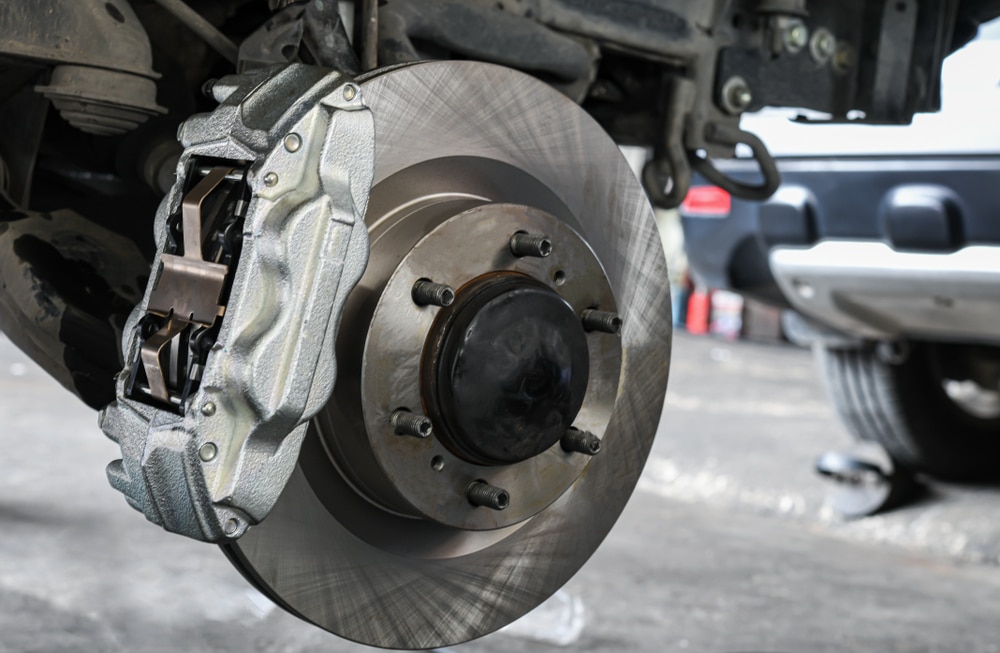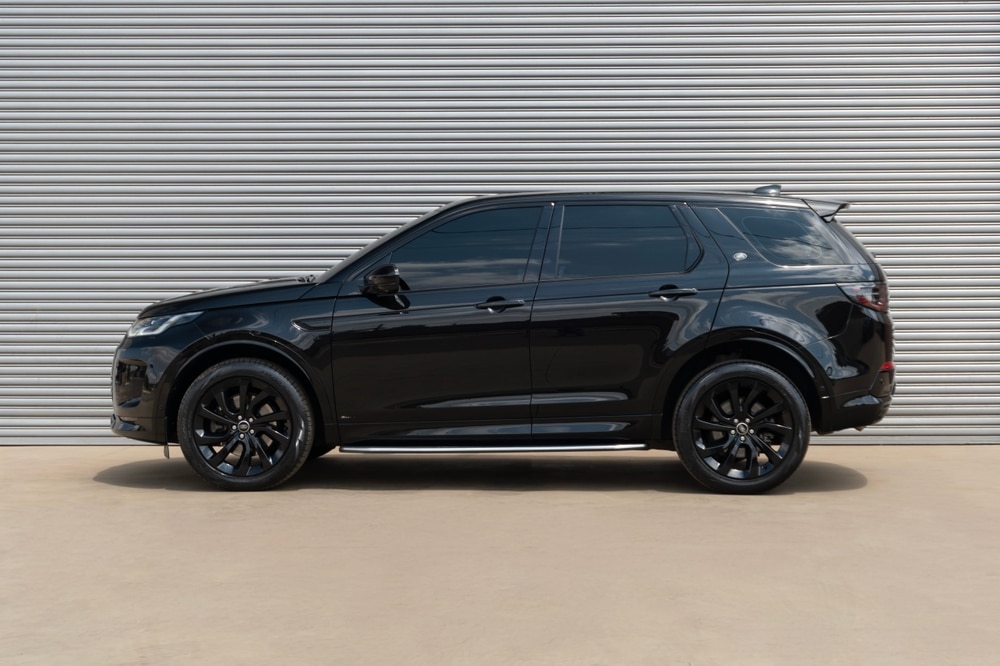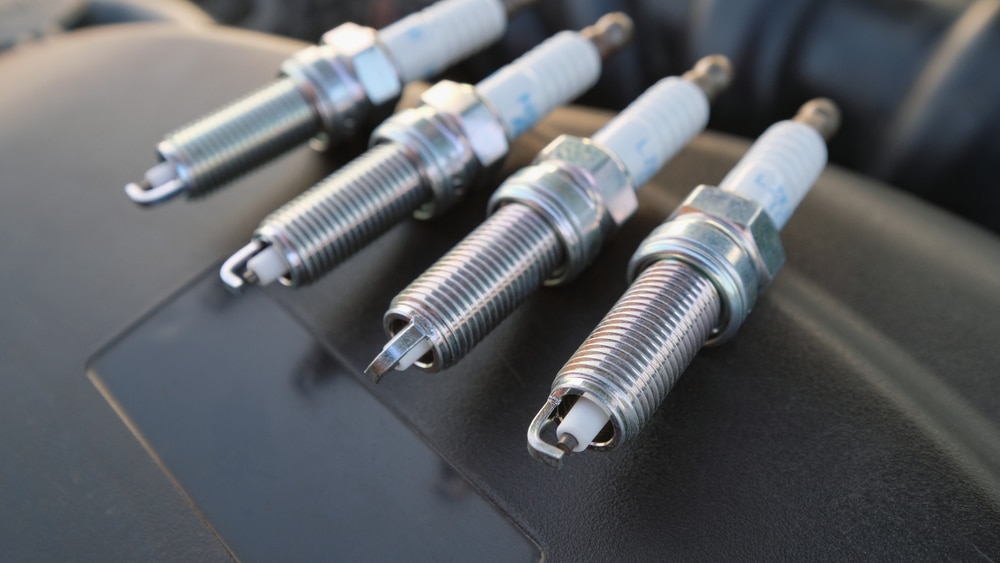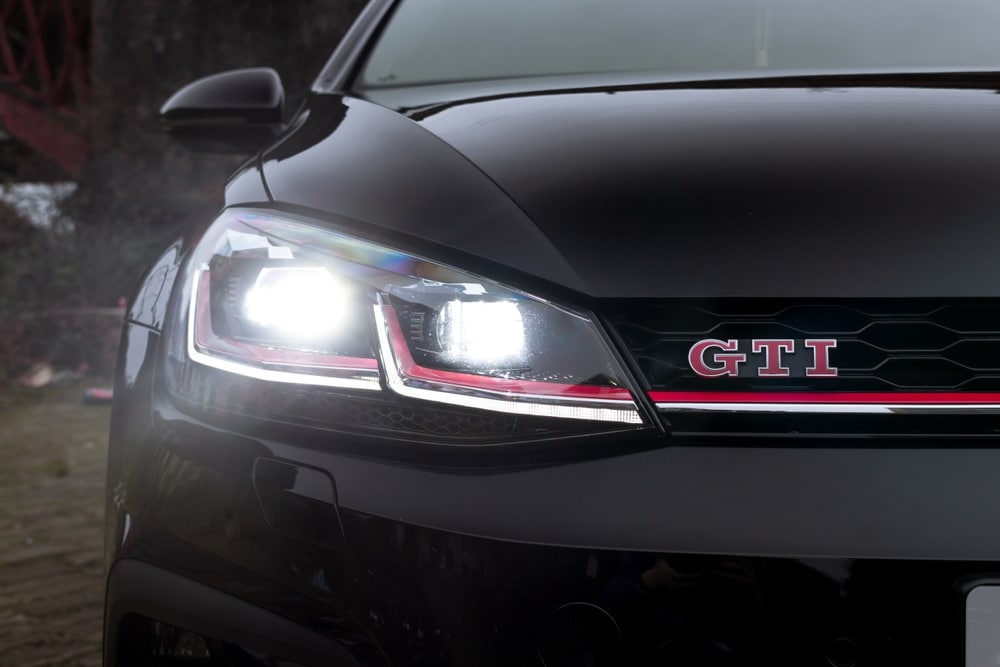Brake Discs
Brake discs don’t usually shout for attention, but when they do, the warning signs shouldn’t be ignored. Left unchecked, early brake disc symptoms can lead to serious safety risks and more expensive repairs. In the worst cases, your brakes might not respond when you need them most.
At Standish Service Station in Standish, we help drivers across the Wigan and Bolton area spot brake disc early warning signs and act before safety is compromised. We’ve replaced thousands of brake discs and pads and know what to look out for and how quickly it can escalate.
If you’re even slightly concerned about your brake discs, don’t ignore it. Call us on 01257 422899 and we’ll inspect them properly, before a minor issue turns into something far worse.
So, how do brake discs actually work, and what should you be looking out for? Let’s take a closer look.
What do brake discs do?
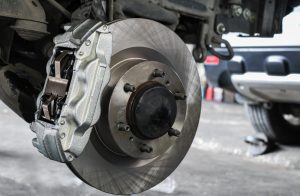
Every time you press your brake pedal, a sequence of events begins. At the heart of it are your brake discs. These metal discs, usually made from cast iron, are mounted to the wheel hub and rotate with the wheels. You’ll find them tucked just behind the alloy or steel wheels on most modern vehicles, working quietly every time you slow down or stop.
When you apply the brakes, hydraulic pressure forces the brake pads to clamp against the spinning brake disc. This contact generates friction, converting the vehicle’s kinetic energy into heat. It’s that friction that slows the wheel’s rotation. Because this heat builds quickly, discs are designed to disperse it efficiently. That’s why brake discs are more common on modern vehicles than older drum systems — they offer more consistent performance, especially under repeated or heavy braking.
At Standish Service Station in Standish, we see firsthand how crucial healthy discs are to safe stopping. Without them, the system can’t do its job, even if your brake pads are brand new.
Main Types of Brake Disc
Not all brake discs are built the same, and for good reason. Manufacturers specify the correct brake disc type for each vehicle based on its design and performance requirements, ensuring it can handle the expected levels of heat and braking force. At Standish Service Station in Standish, we inspect both front and rear brake discs (where fitted) closely to make sure what’s there still meets the required specifications.
The most common variation is between solid and vented discs. Solid discs are made from a single slab of cast iron and are typically found on the rear of many vehicles, where braking force is lower. Vented discs contain internal vanes or air channels that pull cooling air through the disc as it rotates. This makes them ideal for the front wheels, which take the brunt of the braking due to weight transfer.
Most everyday vehicles use cast iron discs. However, high-performance models may require advanced materials such as ceramic or carbon fibre composites to cope with extreme heat and stress. Regardless of the setup, Standish Service Station always fits the exact type and material recommended for your vehicle. We don’t take shortcuts with safety.
What Can Affect Brake Disc Lifespan
Brake discs are engineered to handle extreme conditions, but that doesn’t mean they last forever. In fact, several factors can shorten their service life, even under everyday driving in and around Standish.
- Heat is the number one enemy.
Repeated hard braking, especially without allowing time for the discs to cool, can lead to overheating. If the disc surface reaches critical temperatures (around 650°C), the metal structure can permanently change. This makes the disc more brittle, less effective at dispersing heat, and prone to warping or cracking.
- Driving behaviour plays a big part too.
Sudden stops, riding the brakes downhill, or braking late and hard all generate more heat. Over time, this accelerates wear and increases the risk of distortion or surface cracking.
- Improper bedding-in of new pads is another common issue.
If new pads are forced into heavy use too early, they can transfer material unevenly to the disc, leading to thickness variation and an uneven braking surface. For best results, brakes should be bedded in gently for the first 200 miles or so, avoiding harsh braking and allowing the discs to cool fully between braking events.
- Brake calliper faults
These can keep the pads dragging against the disc, causing constant friction and heat build-up.
- Rust or dirt on the hub
Even a small amount can throw the disc slightly off-centre, leading to vibration and irregular wear.
- Incorrect installation
If the wheel bolts are over- or under-tightened, or if torque settings aren’t followed precisely, it can distort the disc or misalign it against the hub. That distortion may not be visible, but it can quickly affect braking feel and disc longevity. At Standish Service Station we always use calibrated torque wrenches and follow manufacturer guidelines when fitting brake discs.
- Disc quality matters.
At Standish Service Station, we never take chances on materials. Poor-quality or non-OEM discs can overheat faster, wear down more quickly, and may be less likely to hold up under real-world driving conditions. We always fit brake discs that meet the manufacturer’s specification, because your safety depends on it.
Unsure or concerned? Book a brake check or service with Standish Service Station in Standish, and we’ll inspect your brake discs and pads.
Warning Signs Your Brake Discs Need Attention
Brake discs wear gradually, which makes it all too easy to miss the early warning signs — until stopping safely becomes a real problem. At Standish Service Station in Standish, we’ve seen vehicles arrive with brake disc symptoms that have clearly been left too long.
Here are the key signs that something isn’t right:
- Vibration or pulsing under braking
If your steering wheel shakes or you feel pulsing through the brake pedal, especially when braking from speed, it could be caused by a warped brake disc or uneven disc thickness.
- Squealing, screeching, or grinding sounds
A high-pitched squeal may point to grooved or worn discs, especially if the noise appears after new pads have been fitted. Grinding could suggest more advanced wear or heat-related damage.
- Visible damage on the disc surface
Look through the wheel spokes. If you see blue spots, fine cracks, or uneven colouring, the discs may have been exposed to overheating or excessive stress.
- Burning smell after braking
A sharp, acrid smell after braking can indicate that the brake discs or pads are overheating, especially if a brake calliper is sticking and keeping the pad pressed against the disc.
If you notice any of these warning signs, don’t wait for them to get worse. The braking system is a complex, interconnected setup, and these symptoms could point to a range of underlying issues. Ignoring them can lead to wider damage, affecting not just your brake discs but also your pads, callipers, and overall braking performance. That’s why a thorough inspection by our trained technicians is essential.
Want to know more? Check out our other blogs on Brake Pads and The Braking System Explained for a complete picture of how everything works together.
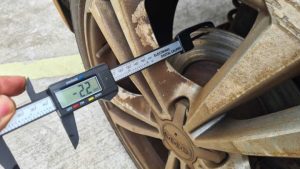
Why You Shouldn’t Delay Brake Disc Replacement
When it comes to brake discs, the longer you leave a problem, the more dangerous and expensive it becomes. A slight vibration today can turn into a complete loss of braking control tomorrow.
Here’s what can happen if worn, warped or overheated discs are left unchecked:
- Loss of braking efficiency (brake fade)
Brake discs that overheat or become too thin can’t disperse heat properly. This leads to fading, where pressing the pedal feels normal, but the car doesn’t slow down as expected.
- Disc damage
Extreme heat or stress can cause thermal cracks or warping of the disc. These changes can make the vehicle unstable under braking. If cracks grow deep enough, the disc can fail completely.
- Steering shake and vibration
Warped discs cause the brake pads to grip unevenly. That creates steering wheel vibration under braking, which is a serious hazard when you need smooth braking control.
- When heat causes brake fluid to fail
Excessive heat can cause the brake fluid to reach boiling point, creating vapour bubbles that compress under pressure. This causes the brake pedal to sink to the floor with little or no effect — a terrifying feeling for any driver.
- Collateral damage to pads and callipers
Running new pads on bad discs leads to faster wear, noise, and reduced lifespan of both components. You end up paying for brake disc replacement and brake pads sooner than necessary, along with increased safety risks.
At Standish Service Station in Standish, we treat brake disc symptoms seriously because ignoring them can mean putting yourself and others at risk. If something doesn’t feel right when you brake, get it checked. It’s not just about getting rid of a vibration, a smell, or a sound. It’s about making sure your brakes respond when you need them most.
Book Your Brake Disc Check with Standish Service Station in Standish
If you’ve noticed changes in how your brakes feel, sound, or perform, don’t wait to find out the hard way. Brake discs don’t give second chances when they fail. And the signs that something’s wrong often show up well before a breakdown happens.
At Standish Service Station in Standish, we carry out a full inspection and measurement of your brake discs and pads, assess the wear pattern, and follow manufacturer specifications precisely. Whether it’s front or rear, solid or vented, we make sure everything fitted to your vehicle is the right match, both for safety and performance.
Our technicians are trusted by Wigan and Bolton drivers for a reason. We know the risks of continuing to drive with worn or damaged brake discs, and we’re here to help you avoid them. We precisely measure brake disc and pad thickness. There’s no guesswork, no cutting corners — just expert advice and high-standard workmanship.
📞 Call us on 01257 422899 to book your service or brake check. We’re here to keep your vehicle safe, reliable, and ready for the road — the way it should be.
